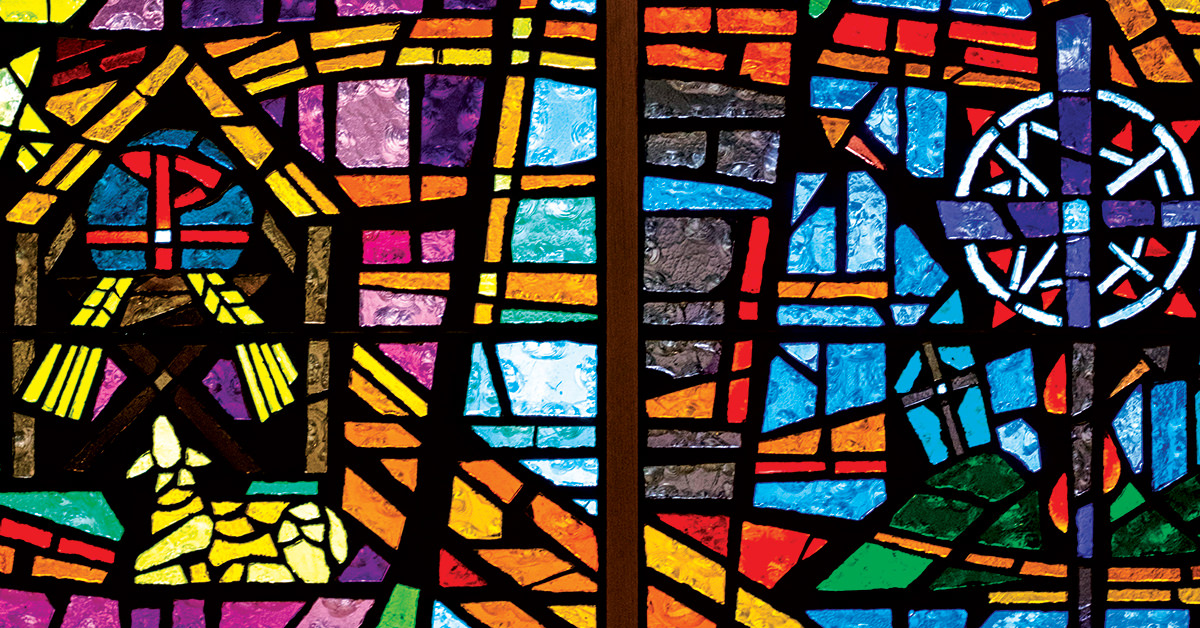Why Mission and Identity Matter

Written by Dr. Carl Trovall
I have found it common for friends and colleagues to ask me, “Now, what is your title again?” I even stumble over it. Repeat after me: The Richard J. Dinda Professor of Lutheran Identity and Mission.
Why This Position?
The next question put to me is, “Why did Concordia create this position?” The short answer is because universities who deliberately place an official in this role better retain their faith-based purpose, mission and identity.
One colleague from St. John’s University in Collegeville, MN told me at a Lilly Conference that after the school dropped their mission officer, they found that the university had to re-establish the position after just a number of months.
Here is the longer answer to the question: During the last 25 years, Church-related colleges and universities in the United States have faced at least two significant challenges.
The first has been a loss of memory of who they are and why they came to exist. With financial pressures and the desire to appeal to greater numbers of students, many church-related colleges have decided to disentangle themselves from their church denominations and even disassociate themselves completely from the Christian heritage that birthed them.
A second challenge has been deciding how to become a university which offers a rich curriculum for both Christian students coming from the denomination of the university (in our case, The Lutheran Church-Missouri Synod), and students from all other religious (including non-religious) backgrounds.
In the past, when nearly all faculty and staff members were taken from the church denomination that a university was affiliated with, universities did not have to worry about cultivating identity.
It existed in its hiring practice, where only people of a particular denomination were hired, and/or they would be made to agree with the theological position statements of that denomination. It also reinforced the regular presence of clergy in its leadership, mandatory chapel, baccalaureate services, etc. Over the years, some of these practices have become less tenable, or impractical, and no longer exist for most church-affiliated universities.
Church-affiliated universities like ours who hope to retain a strong identification with the Christian church and tradition, yet who also hope to robustly engage with the wider world, have had to be deliberate about their mission and their identity.
This is why Concordia has made a commitment to a position of identity and mission, generously underwritten in part by the Richard J. Dinda family. A correlation has been shown between colleges and universities who have successfully retained their faith-based identity, and who have established a standing position on mission and identity.
Why Mission Matters
As you know, Concordia has a new mission statement:
Concordia University Texas empowers students of all backgrounds to lead lives of critical thought, compassionate action, and courageous leadership. As a liberal arts university rooted in the Lutheran tradition and affiliated with The Lutheran Church-Missouri Synod, Concordia develops the mind, heart, soul, and body, preparing leaders for lives of service.
Why does this new mission matter? Dr. Susan VanZanten is dean of Christ College at Valparaiso University and will lead CTX in the Professional Development retreat in August. She offers three reasons why a faith-based mission matters more than ever for Christian higher education.
First, Mission Provides a Foundation
Sociologist Max Weber once admonished his students that “they should not turn to the university for ultimate meaning or a world view.”
Contrary to this secular vision of the university, faith-based universities like Concordia have explicitly bound themselves to a moral and faith purpose; Concordia exists to infuse the world with hope and empower students of all backgrounds to live a meaningful life of ethical leadership and service.
Second, Mission Leads to Formation
If we do not know our mission, mentoring and forming teachers and learners will be impossible. Stanley Fish has said that professors should not try to instill virtues or beliefs in their students, such as a commitment to social justice.
I find this statement astonishing! If a business made a statement similar to this, it would go out of business. At Concordia, faith-based higher education exists to form students in a moral tradition with specific values, especially justice, faith, hope and love. But it also shapes students in the practices so badly needed by our world like humility, listening to those who disagree, open debate, critique and love of lifelong learning.
Third, Mission Permits Maximal Freedom
Faculty and students who have moved from state institutions to 'religious' ones discover to their surprise that they often have greater academic freedom. I have told numerous prospective students and parents that greater freedom exists to talk about issues that deeply matter, especially faith issues, in a faith-based institution than non-faith based schools.
There is no censorship of people who believe, who don’t believe or who struggle to believe. Faith is both affirmed and put under rational scrutiny. Here, discussion of delicate faith matters and controversial moral issues are not forbidden but encouraged.
Clearly, we do not seek to coarsely proselytize or to diminish those who are not Christian, but our mission permits us to be honest about what our ultimate commitments really look like. And, we want to invite people into this exciting journey of liberation through the liberating (liberal) arts.
